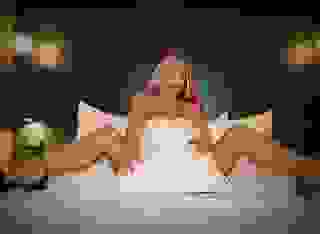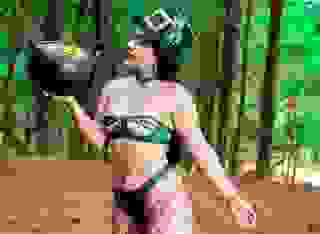- NonConsent/Reluctance
- Partisan Years Pt. 07
Note: You can change font size, font face, and turn on dark mode by clicking the "A" icon tab in the Story Info Box.
You can temporarily switch back to a Classic Literotica® experience during our ongoing public Beta testing. Please consider leaving feedback on issues you experience or suggest improvements.
Click hereMay Day
It took Vladimir Masovka a long time to die.
With the renewal of spring came fresh fighting, fresh missions. The flood of men across the Vitebsk gate strengthened us, until Vladimir had near three hundred men under arms, and controlled a string of villages south of the Smolensk rail line.
As the weather warmed, the German efforts regained some coherence. Everyone expected an offensive, against Leningrad or Moscow, and thousands of rear echelon soldiers poured into Belarus to hasten the pacification campaign. Only careful observers could detect the shift of German artillery and armor south along the rail lines.
In late April, we identified a German supply concentration, where they stored several freight carloads of grain, hundreds of tons of potatoes, barrels of shortening, tinned meat, all the rest. It was a peach ripe for the picking.
Heinrich's force was the weakest company, filled mostly with new recruits, men with little combat experience. He would serve as the blocking force while Vladimir and Kiril Denisovich commanded the attack against the post.
It was supposed to be a brief mission: strike with dawn on International Workers' Day, liberate the supply, distribute what could be distributed and burn what could not be taken. Such granaries were common in the countryside, largely for want of rolling stock to carry the surplus back to Germany (the redeployment of heavy arms southward unbalanced the concentration of rail cars). The defense of such points generally consisted of a single platoon, backed by Polizei or local auxiliaries.
Vladimir addressed us in the predawn chill.
I never loved him, but as he spoke of the gradual wearing of the enemy, and how far our movement had come, I could see that side of him, brave, virtuous, pragmatic, which struggled constantly against his cruel, self-serving nature. If that side of him had won, he might've been a good man. He would certainly have died sooner, perhaps before I met him.
We approached from the south and east. Vladimir's section moved towards the left, aiming to get as close as they could to the post by wood and gully before detection. Kiril's section, my section, would advance across four hundred meters of fallow field to draw their fire. We lay in the spring brush and the mud, watching the guards in the post smoke their cigarettes, their obsolete, water-cooled Maxims visible in two raised posts at either end of the camp, makeshift huts and granaries between.
I sighted my rifle, laid the sight post on the helm of one of the smoking men. The signal was the Internationale, passed along the line by whistling men, eerie, like birdcalls in the pale dawn. The sound reached Kiril, and he leapt to his feet.
"Arise! Victims of famine! Arise, the tortured and the damned!" He screamed. I pulled the trigger.
Scores of rifles clattered as one. The smoking German tumbled from his post. Others ducked or fell. The first half of our section rushed forward to my right, following Kiril as he charged, unarmed save for his revolver. My half, Lev's half, my brave boys, fired and fired, then reloaded. Then Kiril dove into the grass and it was our turn to sprint, out of the dawn, out of the woods, into the fields of fire.
Up. Forward. Past the straggling saplings and the ditch at the field's edge and into the open. The first tearing-cloth burst of the Maxim sounded. Shot whip-cracked past me. I heard a man scream. Rifle shots shrieked about me, but I did not slow. The fever of battle had taken me, and there was no conscious thought, no fear. All my being was focused on my stride, when I moved, and the bolt and sight of the gun, when I lay.
I hit the dirt, Kiril rose again. To our left the first half-section under Vladimir broke their cover, and at once the Maxim facing us swung its barrel towards them. I pulled the trigger, worked the bolt.
A screaming came across the sky.
After so long in the field, I knew it. 105 shells. The first salvo landed in the woods, among Vladimir's men, titanic blasts, deafening, shaking. But not for us. They did not have our number yet.
I scrambled up, ran while bent double.
The rifle fire before us increased, swelling past a platoon's fire. The morning air hummed as if alive. A faster machine gun opened, an MG-34, I think, its arc of fire sweeping at knee height through the field. More shells fell to our left, a second salvo. Infantry mortars joined, their muzzle flashes clear above the parapet of the camp.
We'd been tricked.
There must've been a whole company inside this pos. The 105s burst in the woods, and the narrow meadow Vladimir and his men had to traverse.
A minute, maybe, had elapsed, enough for us to get halfway to the wire. They'd been awake, not asleep. The gunners with their fields of fire ready, the infantry lodging in the huts and granaries, just waiting for the first sound.
The rising sun alone saved us. It cleared the trees at that very moment and blinded the riflemen before us. We were close enough for the submachine gunners to start up, and the chatter of our guns drove the German heads down long enough to get us into hand grenade range.
There are moments where a defensive enclosure becomes a psychological trap. The first burst of a grenade in a trench is such a moment, for you know then that your enemy is close, know he can smell the sweat on your uniform, the coffee brewing in your dugout, see the whites of your eyes and the little medallion at your neck. Undisciplined men, even good men whose recombinant units lack cohesion, will often break at this moment, leaving their machine gunners to face the spades and bayonets alone.
So it was then.
Kiril reached the wire first, lobbed two grenades over and when they'd exploded he jumped over the parapet, and I heard his revolver barking. More followed him, the shouts of our cause, the blasts of hand grenades, the screams of dying men all audible to me now. I raced forward, the fire before us slackening. Lev and the Uzbek brothers were before me. A German fired up as they crossed the wire and I saw Jasur fall away, his breast broken open by the point blank shot.
Then my bayonet was in a German's belly and I was in their works, with a scream in my throat. We cleared the firestep, seized the MG-34, and one of the Maxims. All the while the shellfire continued to our left.
The Germans ran.
Then, maybe five minutes later, the shells fell on us. I buried myself in the earth, hugged the trench wall with all my will, pressed my face down into the cool, damp black.
I lost count of the salvos. But the thunder atop us was constant. They'd hit us as soon as their own men crossed the wire out. For a long time, ten, twenty minutes, fifty salvos, everything was concussion and flame and there was only the bitter smell of smoke and the deafening crash of shells, as if the earth itself were being rent asunder by some primeval, godlike force.
Then the rifles started again. The Germans had come back to teach us to cross their wire. And it was our turn to run.
After that, my memory is imprecise, the shells had shaken me badly. There were men, auxilliaries, on the far side of the field across which we'd come, so we had to pull back through the woods where Vladimir's company had been savaged. And the shells fell amongst us still.
When we gained the track by which we'd come, Polizei opened on us in an ambush, and a mounted squadron raced to cut us off, crying for their Collaborator state under their Feudal pennant like men on Chevauchee.
At some point, the fire grew so hot that I flung myself down, and tried to find my bearings. Everything was confusion. The Germans were on top of us. All around us, everywhere. And everywhere they weren't, I found walls of shellfire, and howling splinters big enough to tear a leg clean away.
I was alone.
The dead of my unit, the wounded, the fallen horses of the Polizei company, were all I had for company. Everyone else had escaped or fallen. Then I heard pistol shots: Germans giving the coup d'grace to our own wounded.
There was a horse before me, one leg and its belly mangled by a grenade or a mortar shell, the rider lay dead too, his chest broken open by a shot.
Only this or light brush for cover.
I took the bayonet from my rifle and stuffed the gun as far as it would go under the dead horse. I cut the shell wound wider on the horse's belly and pulled some of the guts from it.
They were close. So close.
I folded myself inside the stinking belly of the beast.
And I waited.
German voices near.
"I shot her," one voice. "I saw the cunt go down."
"Lieutenant, How do you know it was a girl? The Russians are men too, they'd eat her up."
"The dogs will sniff out any cunt if you're right," a third voice. "But what good is a dead woman."
"A hole is a hole is a hole," the first voice. "Besides, I have it on authority there's a bitch in that pack of hounds."
"Schnapsidee," the second. General laughter.
Then they were nearby. They must've stood round the horse. I could see nothing buried within those hellish innards. The close stench of blood hung heavy in my nose. I lay the bayonet's blade along my wrist so, with a flourish, I could slit the throat of any man who pulled me out of the horse belly.
"He lives," the German lieutenant said.
And I heard a voice call out soft in Ukrainian.
"The horse." It was the Polizei.
"It's right there," the second German said. "Seems it crushed away the nerves in your leg."
"No. In the horse. Look inside of the horse," the Ukrainian said in his own tongue.
"It's dead too," the German said. "I don't know what to tell you."
"Oh shut him up, will you Fritz?" the Lieutenant said.
A rifle shot. Then the Germans walked away. I heard their voices diminish as they passed into the distance.
But I was far from clear.
It was hot in the belly of the horse, for it had been dead only a few minutes when I slit it, and it scarcely cooled under the harsh morning sun. For hours, I listened to the tramp of boots and the banter of the Germans, as they stripped the bodies of my comrades and their own fallen. They took their dead to be buried by the camp and left ours laying with the battle wounds open to the sky. I would see them later, naked, with rictus grins on their faces and swollen bellies black with rot.
But all day I waited, curled up in the belly of the horse, with nothing to eat and only the last sips of my canteen to drink. I dared not move, I scarcely breathed, keeping each breath as shallow and slow as possible. At one point, a German handler let his dog eat some of the entrails and I made half-ready to stab it. Almost any torment was preferable to this waiting, my skin slick with blood and viscera, my hair caked with corruption.
My wristwatch, liberated from the corpse of an informant, ticked in the silence, but it was so dark in the beast, I could not read it. Only when the voices had disappeared for what I took to be some hours, did I move.
It was dark. I drank some of my water, tried to see how far the Germans were.
Voices, nearby. Crackling fire. The Polizei must've bivouacked at the edge of the field.
I slithered back into my cell.
They broke camp with the dawn. But the heat of the horse was leaving too, and the cold of night in its bones and guts, and in my skin and muscle. I wanted to cry.
More dogs, more German, more waiting. A sip of water. I counted the watch ticks in my head, from reveille onwards. A sip, just a sip, of water every seven thousand seconds. I counted these long watches. At first, it seemed madness, but after the first few hundred seconds I could feel this prison sentence grow lighter. Each second was a second closer to dark. At dark, I would go. The space between the watch ticks stretched on infinitely, a dark hour of blood and bile. In those spaces, those moments of stillness which in life are so compacted, so sharp, I had time to think, to remember. Gradually, as hunger and thirst wore at me, about twenty two thousand seconds since I began to count, I wondered if there was some irony in hiding here, like a parasite in someone else's belly. But this was the closest I got to madness.
In the many hours I'd spent in the company of my rapists, I'd learned how not to think. And I used this now, so that I slid along the dismal seconds like a buoy on the waves, registering each tick with a mechanical thought: twenty three thousand four hundred and sixty two. Silence. Stillness. Near to the sleep of death. The infinite time from the drop of the hammer to the blast from the muzzle. Twenty three thousand four hundred and sixty three.
Sixty one thousand two hundred and seven seconds after the reveille blew in the German camp, I moved.
Darkness, night, a faint, high moon, but compared to that pestilential closeness inside the horse, it was paradise on earth and the silver light was so beautiful that I did weep. I retrieved my gun, what was left of my pack, and I saw the bodies of my dead comrades in the field.
I stumbled, stinking of blood and death, thick with it, coated. I thought, absurdly, of the Christians and their original sin. Man is conceived in sin, born into corruption. Well, here I was, reborn anew. As sure a harpy of Hell as has ever stumbled up from the lake of fire, a bloody Jewish terror born from the pooling slime where death and life ran together.
Or was there no meaning in it? Just the happenstance of war, the tumble tide of ruin and the jostling of so many millions. Surely others, somewhere, have spent a day, a night, a day in the belly of a horse.
Or was it noble? And I'd become my own betrothed, a Lazarus in need of no savior, no heaven, no angel, demon or priest.
Though I waded in streams and washed in ponds, the stink of rot and blood was still on me when I reached our camp at nightfall the next day.
The Graven Silence
It was Lev whom I found on the watch. The wind carried the stink of my clothes to him.
"Natasha?" He said. "It cannot be."
I tried to speak, but no words formed.
"How did you escape? Are you injured? There's so much blood on you?"
"I hid in a horse."
"Clever." He nodded. "Vladimir got it."
"Got what?"
"Shrapnel through the leg. One's gone halfway at the shin. The other's broken bad. Hit in the belly too."
"He's dead?"
"Not yet," Lev said. "But soon."
One of Vladimir's loyal men guarded the door to his dugout, stripped down to shirtsleeves with a worker's cap on his head and Vladimir's revolver tucked into the waistband of his trousers.
"Miss Natalia," he said. "We'd all written you off."
"As I you."
"Welcome back comrade," he said. "I'm glad someone in this fucking detachment has some luck."
Once other severely wounded men had occupied beds beside him, but fever and hemorrhage claimed them before I returned, so the dugout was empty save the voids where cots once lay. His face was ashen and looked almost like wax, the cheeks sunk, the nose sharper, hair plastered down with sweat.
"Not yet," he said, when he saw me. "Not yet! Please."
"Still," I said. "Still, Volodya. I'm alive. You are too."
He fixed me with a quizzical glare.
"Then go from this lazaret. The fight is finished here."
"No," I said, my voice sharper than intended. I crossed to his side. "What happened?"
"Shell. That's all. They should've shot me. Like we used to. Leave no wounded. I guess I've you to blame for the men getting all sentimental."
I had to smile at that. He returned the grin. He was never more handsome to me than at that moment. I leaned down, close enough that even prying ears nearby would not steal the words that passed between us.
"The Germans had your approach zeroed. They were awake. They had fields of fire set. And reinforcements in position."
"They knew," he said. Color returned to his face. Just a bit, just a hint. The anger, the desire of Vladimir Masovka flared up one last time. "Kill that bastard, Natasha."
"I will."
Then I rose to go and wash the last of the crusted blood and viscera from my skin and hair, and to see if I could bargain for new clothes.
Vladimir died sometime in the night, his fever had made him delirious. Kiril was with him. If he said anything more about me, I don't know.
Kiril, wounded and with his arm in a sling, gave a funeral oration. We wrapped Vladimir in sheets and buried him in the early morning. I'd have lingered by the grave, but I had not slept at all through the strange, half-life inside the horse, so when the earth fell on the pale shroud, I lost my strength and sat hard in the earth.
I would not cry for Vladimir Masovka, author of my degradation and misery. But I could not stand that he was dead. So I returned to my bivouac, and slept instead.
It was dark when I woke. For a moment, I was confused. But I rose to alert the duty officer that I could take a watch. But, in place of the duty officer, I heard voices in the command dugout. I paused at the door to listen.
"They can vote for you, Yid, but that won't make you an officer," Heinrich hissed at someone.
"You're afraid, Heinrich. For what? That I won't be so blind?" Lev said.
"Peace, brothers," Kiril said. "The men have voted to appoint Lev captain of the first contingent. There will have to be some rebalancing of manpower. As it is, we can have three sections, each of fifty men, plus the signals and political sections."
"Well who made you commander?" Heinrich said. "If we're a democracy now."
"The order came from the regional control council," Lev said. "By radio. One of your men decoded it. Captain Kiril Denisovich is now Major Kiril Denisovich."
Silence hung cold between them.
"Dismissed," Major Kiril Denisovich said. Both men shuffled out. I ducked into the shadow beside the door, so neither would see me as it opened.
Lev walked behind Heinrich, the latter had his head down. Inside Kiril Denisovich's pen scratched at paper. He would be in there an hour yet, working through the political reports, working through intelligence, drafting his orders. He was a soldier, but a soldier of ink more than of steel.
"I know what you are," Lev said to Heinrich's back as they walked away from the dugout. "My men know it too. If I fall, they'll castrate you and tear your fingernails out and grind you up into schnitzel to feed your handlers."
Heinrich swung on his foot and threw a punch. Lev slipped it and slapped him.
"Unbecoming your dignity as an officer," Lev said. "But everything about you is unbecoming."
"Kill me, despise me, it does not matter. It will not change the outcome," Heinrich said. Lev laughed and walked away into the darkness.
As Lev departed, Heinrich straightened his eyes found me. I knew then how the next hour would transpire: I would fly from him; he would catch me; he would play his one sided game and I would hurt, maybe orgasm; while Kiril worked to translate Moscow's political directives into planned orders; while Lev and his new section bedded down; while Vladimir's flesh turned to corruption under the black forest earth.
I wore my mother's boots still, though they stank of horse blood, but the rest of my clothing was new, to me at least, a tunic, trousers, undershirt, loose cotton undershorts, a peaked forage cap with a red star.
I considered, briefly, calling after Lev, and I thought of what would follow, the knife, the fist, the pistol butt, the rifle shot.
"Los geht's," Heinrich said. He had no need of a pistol. I stepped out of the darkness, resigned to my fate. "Down past the cemetery," he said. "Where we'll have some quiet." He meant the section of the camp on the far side, where there were no dugouts, only a spring garden plot, and some land set aside to build a new infirmary and dugouts for a planned fourth section. It was far from the watch posts, for in the day the half-cleared space beside the garden functioned as a drill yard.








